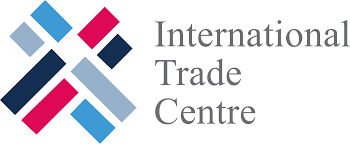Measuring travel in trade statistics is complex. Travel spending can include street food and hospital bills, which makes it hard to gather data.
Only 56 countries currently report travel data by partner country. That’s essential data for understanding a country’s travel market. In Eswatini, the travel trade is booming, so ITC is working with the African kingdom to improve its data to find more ways to grow.
In 2023, international travel receipts close to $1.4 trillion—surpassing pre-pandemic levels and making it the world’s leading trade in services category.
Travel is classified as a service, including spending on goods and services by non-resident travelers —ranging from accommodation to healthcare. Capturing this data is difficult, especially when transactions occur in cash or via local accounts. While traveller surveys help, they are expensive and often limited.
Eswatini’s travel sector is growing fast. In 2023, it contributed $52 million to the economy—a 51% increase from 2022. Export revenues from travel exceeded $21.4 million, topping pre-COVID figures. However, better data is needed to fully leverage this growth. ‘A lack of reliable trade data has limited Eswatini’s ability to benefit from intra-African trade,’ noted Melusi M. Masuku, Principal Secretary at the Ministry of Commerce, Industry, and Trade.
To address this, the International Trade Centre (ITC) has partnered with Eswatini’s key institutions—including the Central Bank, Central Statistics Office, and Eswatini Tourism Authority—to improve travel data systems. A technical workshop in April 2025 focused on integrating data from multiple sources, capturing cash transactions often missed in official records, and improving the effectiveness of exit surveys.
Unique challenges remain. Eswatini uses both the lilangeni and South African rand, and most official data is based on bank declarations, missing many exchanges. ‘Comprehensive data will help us design better tourism strategies,’ said Fakazile Mabuza of the Eswatini Tourism Authority.
Khetsiwe Dlamini-Maziya from the Central Bank emphasized the role of the African Trade Observatory (ATO) in validating data and fostering institutional collaboration, which is critical for data accuracy. The ATO provides reliable and timely data, giving African businesses trade intelligence, including trends, opportunities, and market access conditions. The ATO workshop in Eswatini also encouraged dialogue between statisticians and tourism stakeholders to promote shared data collection efforts.
Looking forward, ITC aims to help Eswatini refine its travel statistics, automate processing, and publish bilateral travel trade data. As countries transition to new global standards like the Balance of Payments Manual, Seventh Edition (BPM7), continued technical support will be crucial.
The African Trade Observatory is led by the African Union, implemented by ITC, and funded by the European Union.
Distributed by APO Group on behalf of International Trade Centre.



